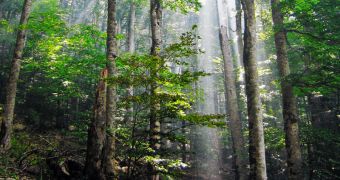A group of scientists from Utah State University have reached the conclusion that protecting and supporting the environment represent activities that take out of the government's pockets a great deal of money which would be better invested in other fields.
Republican lawmakers made a list of areas which need to be protected, despite the opinions which state the fact that such a conduct implies a waste of funds.
One of the first places added on the list is Beauty Mountain and Aqua Tibia in northern San Diego County, that offers a great view. Next destination is Alpine wilderness, located east of Seattle, which has been proven to be one of the most visited areas in America, that have not been affected by human intervention.
The third location which was taken into consideration is in Idaho. The republicans have set their eye on three wilderness areas that sum approximately 330,000 acres of land, covering the Sawtooth and Challis national forests and also the The Boulder-White Clouds mountains.
Last two locations that were numbered among the areas that require preservation are 20, 000 acres belonging to Cherokee National Forest and Sleeping Bear Dunes National Lakeshore on Michigan Lake.
In response to this theory, Headwaters argued that the wilderness brings a great deal of advantages to local economies, from those related to air quality and other earth-friendly values to financial aspects.
In order to highlight the financial benefits, we might want to take into consideration fields of activity such as ecotourism, for example, which is a form of generating profit while taking care of the natural beauty which surrounds us.
Theodore Roosevelt himself, while trying to protect the Grand Canyon from the damaging effects of mining, stated that "There is nothing more practical than the preservation of beauty."
Due to his initiative, nowadays Arizona proudly calls itself the Grand Canyon State and manages tourism as a national business which brings millions of dollars to the budget every year.
Therefore, wilderness can be considered a source of profit, though we can't limit its role to just that.
The care and respect for wilderness should find its roots in the way it helps us keep in touch with our history and cultural values, according to Jim DiPeso, author of the article How Much is The Wilderness Worth?
Headwaters Economics represents a nonprofit, independent organization which has combined, for 20 years, innovative long-terms strategies with advanced research techniques, focusing on land management decisions in the West.

 14 DAY TRIAL //
14 DAY TRIAL //